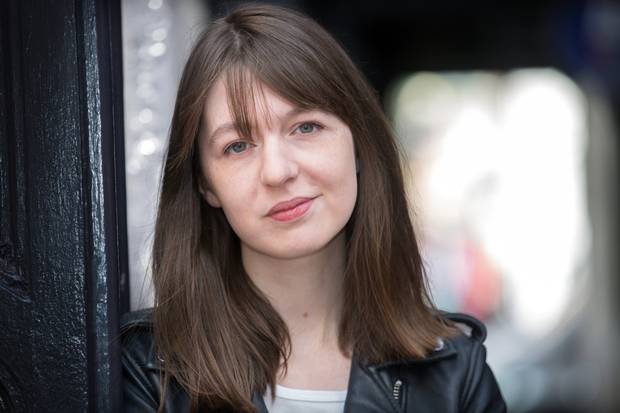Is Sally Rooney boycotting Hebrew? Twitter would certainly lead one to believe so.
Rooney trended on Twitter once again this week after news broke that she had declined to sell translation rights to an Israeli publishing house, despite the fact that her two previous novels had been translated into Hebrew. The timeline then promptly set itself alight with discourse. But no, Rooney is not boycotting Hebrew. The award-winning author released a statement following the backlash saying that she “refused to allow her new novel to be translated into Hebrew due to her support of the cultural boycotts of Israel”. The cultural boycotts in question are those sanctioned by the BDS movement (boycott, divestment and sanctions), a Palestinian-led worldwide movement. In a statement from Faber and Faber, Rooney said that she would be “pleased and proud” to have her recently published Beautiful World, Where Are You translated into Hebrew “if I can find a way to sell these rights that is compliant with the BDS movement’s institutional boycott guidelines.
So what’s the problem?
While all popular authors are subject to some form of public scrutiny, Rooney in particular seems to be constantly examined for hypocrisies within her politics – the online rows after she described herself as a Marxist despite the fact she writes books about over-privileged Trinity students comes to mind (not the mention the fact that there was literal merchandise for her newest novel). Misreporting on her decision to not sell the translation rights to this particular Israeli publisher quickly led to hundreds of spurious, if not defamatory, tweets labelling Rooney an anti-Semite looking to boycott an entire culture and community rather than a government.
Misreporting on her decision to not sell the translation rights to this particular Israeli publisher quickly led to hundreds of spurious, if not defamatory, tweets labelling Rooney an anti-Semite
Would this have happened with another writer? Perhaps. A tweet by the editor of Tribune Magazine Ronan Burtenshaw remarked: “Will there be an apology to Sally Rooney from those who defamed her yesterday? No. Because the story about her refusing to publish in Hebrew was a deliberate distortion designed to paint support for Palestinian human rights as antisemitic. That’s how it works.”
Twitter does not leave room to expansively articulate the implications of Sally Rooney choosing not to have her novel translated into the language of a country on one side of a long, complex conflict. But she can be called anti-Semitic in 280 characters.
Will there be an apology to Sally Rooney from those who defamed her yesterday?
No. Because the story about her refusing to publish in Hebrew was a deliberate distortion designed to paint support for Palestinian human rights as antisemitic.
That’s how it works.
— Ronan Burtenshaw (@ronanburtenshaw) October 12, 2021
Rooney is not the first author to boycott Israeli publishers: in 2012, Alice Walker decided against publishing The Colour Purple in Hebrew because she believed Israel to be “guilty of apartheid and persecution of the Palestinian people”. This is not the first time Rooney expressed support for Palestine, either – in May, she signed the Letter Against Apartheid that called for “an immediate and unconditional cessation of Israeli violence against Palestinians”, and asked governments to “cut trade, economic and cultural relations”. So why did this particular incident create such a storm?
It seems sometimes with Rooney she’s damned if she does and damned if she doesn’t. After previously being lambasted for not being politically active enough, she now weathers very pointed criticism after publicly supporting what she believes in. While of course there will always be detractors and disagreements, an alarming amount of the criticism of Rooney’s decision appears to have been made in bad faith – for example, having weathered the brunt of the finger pointing and releasing a statement, Rooney was then accused of not anticipating the backlash to her actions quickly enough – there is no need to spell out how eye-rollingly online these detractors’ actions are.
While there are always healthy critiques to be made and debates to be held about a public work of art (no, I will not be debating calling Normal People art) and a public figure, criticism directed at Rooney always seems painfully personal – something that is rooted in the public’s decision to conflate her with her waifish, sharp-witted protagonists. As a result, critics often perceive, or search for, political hypocrisy that might not actually exist. This, coupled with becoming (somewhat unwillingly) part of the cultural zeitgeist, means that the Sally Rooney discourse wheel just keeps on turning, no matter how mind-numbingly petty or uninteresting it is. It is easy to hate people who are more successful than ourselves – a key part of being a Twitter user is being a hater after all – but Rooney-related “discourse” stopped being interesting a long time ago after it was quickly discovered to be motivated by hatred for who she is perceived to be rather than actually informed, insightful discussion.







